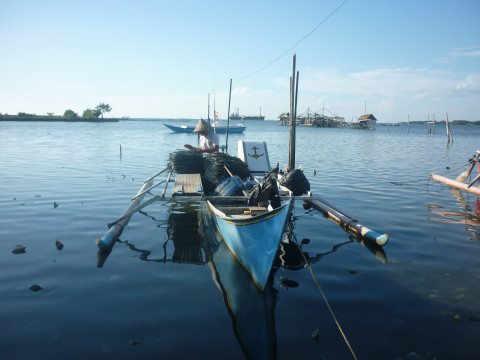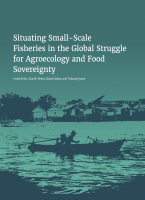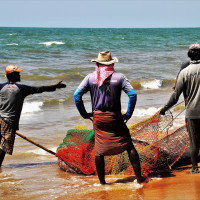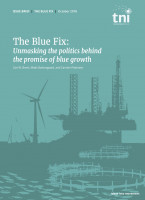Remembering World Fisheries Day
Topics
On 21 November 1997, small-scale fishers from across the world formed a global movement and set sail for a long journey to protect nature and their human rights. Ever since, the World Forum of Fisher Peoples (WFFP) have celebrated this day as World Fisheries Day and even in times of the COVID-19 crisis, they continue the tradition of raising their voices at this special moment.

Thibault Josse
In preparation for World Fisheries Day, on 17 November more than 80 WFFP members, supported by leaders of La via Campesina gathered online to prepare for a day of celebrations at local and national levels in over 50 countries, celebrate and raise their voices together, and prepare a statement for the world1. Participants joined from around the world although, as many communities in Latin America were hit by threatening storm surges, catastrophic winds and flash flooding, some leaders from these fisher movements were unavoidably absent. The meeting was nonetheless an important symbol and reminder of how global movements have worked to find new tools and ways of organising in the face of the crisis of the global pandemic in 2020, refusing to let restrictions, lockdowns, political repression and economic hardship put an end to collective solidarity and organising.
One of the key messages WFFP is conveying to the world in their World Fisheries Day statement is, not surprisingly, that “fishing communities [are] being hit hard by worsening natural disasters [of the] Climate Catastrophe”. The underlying cause, they argue, is to be found in the “ever increasing expansion of mining, oil, and gas exploration in our territories at sea and in inland water bodies” as well as other sectors responsible for vast carbon dioxide emissions that still enjoy political and financial backing. In fact, “the largest area of growth in both oil and gas production is projected to come from deepwater exploration, with off-shore gas production in particular skyrocketing by 69% (2.2% per year) from 2016 to 2040”2.
Fisher movements are also raising sharp critique of the failures of the capitalist development model, arguing that “[n]ational governments, intergovernmental bodies, and the corporate world have unleashed a wealth of new ‘blue’ initiatives and unprecedented capital investments in well-established sectors such as oil and gas, port development, shipping and tourism, and in new sectors such as deep-sea mining, smart cities and bio-engineering.” These sectors combined account for some 75% of the total global ocean economy and are all projected to expand in coming decades, accumulating ever more capital.3 It is inevitable that such an expansion will lead to increased competition and give rise to more conflicts over resources, land, water, and ocean space.
In this context, the struggle for a just transition calls for fisher movements to join ranks with peasants, workers, trade unions, urban poor, unemployed, informal workers, migrants, and many other groups of society who together are the ‘working people’ of today. Accumulation of capital (the generation of surplus based on investments), expropriation of workers, and the climate catastrophe have immense consequences for all working people. Only through organised struggles will it be possible to use the crisis moment to push for just and transformative changes, and a truly just recovery.
On this World Fisheries day, fisher movements emphasise the important role of small-scale fishing in providing livelihoods and income for millions of people. In their statement, they emphasise “[as] guardians of our inland and coastal fishing grounds, we are cooling the planet, protecting our oceans and lakes, and maintaining healthy marine ecosystems and biodiversity”. These messages are strikingly similar to those articulated by peasants and other small-scale food providers. Small-scale food providers ensure that masses of other working people have access to affordable food, and they connect the urban with the rural areas. As such, food – and fish increasingly so, as demand is rising – is indeed a “key part of the solution to the crisis because [fish workers] provide healthy and nutritious fish… for millions world wide” as articulated by the WFFP.
In the midst of the worst crisis fishing communities have ever experienced - with severe impacts from strict COVID-19 lock-down measures, raging and unpredictable natural disasters, and mass expropriations from working people in small-scale fishing value chains – fisher leaders continue to remember and celebrate this special day in a high spirit. With women from Russia and Kenya singing songs about their deeply rooted fishing traditions and mother nature, the WFFP online gathering on 17 November set the tone for a World Fisheries Day where fishing communities and movements continue to build solidarity and celebrate their culture and life in all corners of the world.
Notes
1 We live, We celebrate, We protect: Fishers, Oceans, Mother Earth, Statement of the World Forum of Fisher Peoples (WFFP), World Fisheries Day, 21 November 2020 : https://worldfishers.org/2020/11/19/we-live-we-celebrate-we-protect-fishers-oceans-mother-earth/
2 See The Blue Fix: Unmasking the politics behind the promise of blue growth by Zoe W. Brent, Mads Barbesgaard and Carsten Pedersen
3 The Blue Fix: Unmasking the politics behind the promise of blue growth



